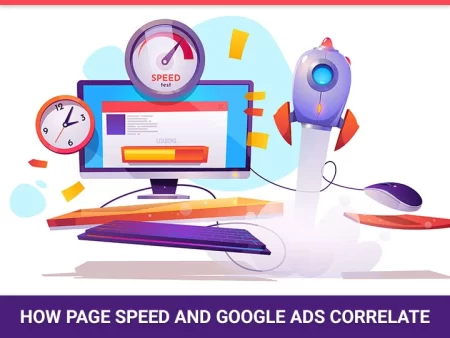 When we design a website for our brand, we often think of images and content placed on the site. Our mind is usually on how we will attract individuals to our page using Google Ads and other tactics. But what about how fast your site is? This is a huge element because it can make or break a visitor’s experience. A good experience may lead to sales, while a bad experience could lead to the visitor leaving the page. Here we will discuss how page speed and Google Ads correlate.
When we design a website for our brand, we often think of images and content placed on the site. Our mind is usually on how we will attract individuals to our page using Google Ads and other tactics. But what about how fast your site is? This is a huge element because it can make or break a visitor’s experience. A good experience may lead to sales, while a bad experience could lead to the visitor leaving the page. Here we will discuss how page speed and Google Ads correlate.
When a person lands on the landing page after clicking on Google Ads, they desire to have the page load quickly. In order for you to do this, there are a few things that you can do.
Keep your website light by not weighing it down with lots of scripts or ads. If you have too many on your page, it will surely load slowly.
- Keep content on the site that individuals will find interesting and possibly share.
- Update your website regularly.
- Be certain your website is easy to navigate. Any content a person is looking for should be easily accessible.
- Keep images in smaller sizes. This can be completed on various apps such as Squoosh.
- Make sure that you have enabled caching. If this is not enabled, your visitors will need to download web files every time they visit your site. This will get old for users that visit all the time, and many will go elsewhere.
Remember, if page speed is fast, visitors will most likely stick around and view various pages. If it is slow, they will click out of your page and look for another option elsewhere.
You must also take into consideration that page speed for a mobile site and a desktop site is measured by themselves. This is because each one uses a different type of technology, so they will not be the same.
Google says that the experience of visitors on your landing page will affect both your ad rank and advertising cost, as well as your quality score. When people quickly leave your page, Google believes there was a poor experience, which directly influences your page rank.
What things impact page speed? Anything on your website does. This includes all content, images, videos, music, and more. The more things you cram on your website, the longer it will take to load. Page speed can also be affected by which web server and host you are using.
But Google is there to help. PageSpeedInsight (aka PSI) is a tool you can use to see what your page speed is. And make sure you are looking at the Adwords metrics. If this shows the landing page has a high bounce rate, you may have an issue with speed.
You should also make sure the call to action is easy to understand. A person who can not easily navigate your site will move on to the next.
And, by all means, make sure you have content that is relevant to your keywords.
You can also optimize better when it comes to your keywords. Consider using specific keywords instead of vague ones. Look into search queries on your search term report in Adwords. Do they correlate with your brand?
If you need assistance with page speed and Google Ads, consider hiring a professional, such as Alphabet Marketing in Clearwater, FL. They can help you with all of this and so much more.
Picture Credit: Freepik
